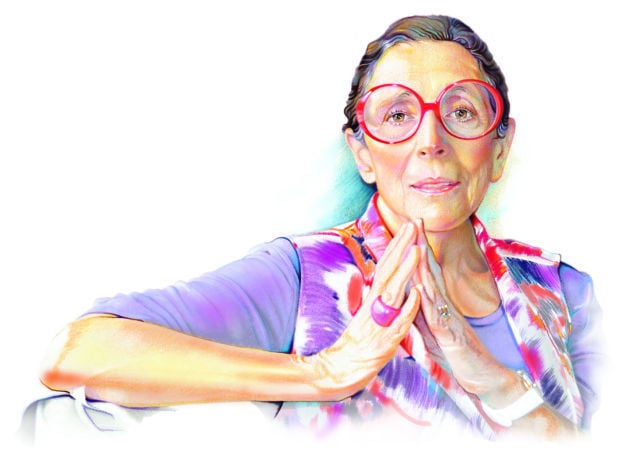I can say with certitude that I have now entered Advanced Old Age (AOA). What is it and how do I know I’m there? I note little losses everywhere, except belly fat of course.
Slower walking, slower cerebration, less energy, even a tad less enthusiasm to do things I like to do. I call this the stay-home-and-stream instead of go-out-tonight phenomenon.
It seems each oldie enters AOA at a different time, for different reasons. Some body changes like sagging flesh are not a major problem but illness or a fall that puts you in a wheelchair can speed up the process.
Pediatricians work with adolescents as well as babies. It never occurred to me until recently that there are similarities between AOA and adolescence. Both going through adolescence and advancing into old age brings a multitude of changes.
Puberty brings changes to just about every part of the body. There are changes in size, shape, sex organs, skin, senses. Teens feel funny in this new body and worry what others think. Their brain is beginning to develop new connections, especially in the prefrontal area where reasoning, planning, judgment and other grownup kinds of thinking reside. Mood changes occur with lightning speed
AOA can bring body changes. We sag, stoop, shrink, see and hear less. Our cognitive changes go in the other direction. We both lose connections in our aging brain and increase our retrieval time. You know this is happening when you finally remember the name of the person you talked to at the party two days later. On the positive side we don’t get zits.
Other positives: None of us care whether we are pretty enough to be popular. We are too busy worrying where we put the car keys. Both groups worry the statisticians who keep track of auto accident rates. Both have higher than average auto accidents. The teens drive pretty well but are risk-takers. We oldies have diminished vision, hearing, and neck flexibility to see who’s coming up on the right. We have a lifetime of driving experience and judgment that teens lack.
The biggest difference is, of course, we have less time ahead. We are winding down not gearing up. By the time we qualify for AOA most of us have come to grips with our numbered days. Our teenage grandchildren may wonder how it feels to be in the last years of life. Can there be a plus?
My answer is a loud yes! We feel lucky to still be around, to have escaped all the illnesses and accidents that could have befallen us. Our bodies are telling us to slow down so we have more time to appreciate what we have.
Do I have any advice for those who approach AOA? Remember until very recently I spent more time writing about adolescents and babies than the elderly. But this is what I have learned from my personal odyssey.
Focus on and be grateful on what is left, not what is gone. Keep as active as you can. Do not shut your self up in AOA…stay connected in person, phone, video chats. An adolescent slams the door of his or her room to mope or sulk. If you feel mopey, OK mope but set a timer: Allow yourself 20 minutes for the pity party, then eat a square of chocolate saved for these moments, and soldier on. Why 20 minutes? Think of it this way, unlike the teen, we don’t have a lifetime ahead of us so let’s not waste what time we have.
Stay curious. Take courses, keep informed and keep reading...it’s good for the brain. Go outdoors. Try to see a sunrise and a sunset and stars every day. That means three times outdoors…good for the soul. Spend some time with younger folks. Don’t try to be who you are not. Rock concert attendance is not necessary and could kill off the rest of your hearing but I always feel refreshed after being with children or young people. Keep moving as best you can. Can’t work out at the gym any longer? Walk (cane if necessary). Accept help with gratitude. Offer help to others when you can.
Don’t fall!
Bottom line for me: I would not want to be an adolescent again. I’d have to make all those big life decisions and go through all those life changes. Perhaps the best comparison between teens and oldies is that we are now our own boss. I can make my own decisions and, if the time comes that I cannot, I have left specific directives and have confidence in those who will make decisions for me.
My mother who died at age 99, and probably would still be here if she had not fallen and broken her leg, used to say, “I’m out of it!” when people were discussing things like politics. I used to think that was the wrong attitude but now I suspect she was happy not to bother about such things. I am far from “out of it” today but if the time comes when I feel I am ready to let others solve the world’s problems, that’s OK too... as long as I can still read good novels and listen to my CDs.





